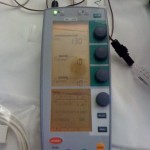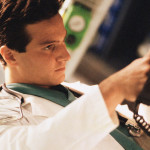
System Failures and Medical Malpractice – Imagine:
- A critical care manager accepting a supposedly experienced nurse’s description of her experience and knowledge base gained out an out of state hospital.
- A critical care manager that supports nurses thinking that they do not need close observation while being precepted.
- A hospital that has, on staff, surgeons that are only present for the surgeries they perform and morning rounds; and these surgeons are not easily accessible, even by telephone, at other times when emergencies arise.
- A hospital where patients can come out of the OR without dressing over lines inserted into major vessels.
- A hospital that hires someone into a managerial position in a CVICU (Cardiovascular ICU) that has absolutely no heart or open heart surgery experience.
Now Imagine How the Following Patient Care Scenario Could Occur in the Above Setting:
- A critically ill patient comes to your unit for coronary artery bypass surgery after having this procedure refused to be performed by three other surgeons.
- This patient gets “tuned up” in the CVICU prior to surgery and goes to the OR with an IABP (intra-aortic balloon pump) in place.
- Upon arrival to the CVICU after surgery the admitting nurse, when pulling back the covers to assess the patient, finds the IABP site without a dressing and covered in bloody drainage. The admitting nurse at that time actually mentions that the chance of this patient dying of sepsis within a 2 week period are inordinately high.
- This patient shows signs of sepsis in less than 24 hours.
- A nurse cares for this patient a couple of nights later that is being precepted. She resents any input from her preceptor. The preceptor, who was also in charge, has to leave the unit to help someone transport a patient to CT scan. While coming back to the unit her phone rings and she is told her preceptee’s patient is coding.
- This nurse runs into the unit to find CPR being performed on this relatively fresh post-op open heart patient that has a temporary pacemaker attached to wires inserted to the surface of the heart.

- This nurse tells the nurse she is Precepting to turn the temporary pacemaker on and to hold compressions. Unfortunately this nurse that supposedly had experience caring for open heart patients did not only not realize that the first thing she should have done was turn the pacemaker on, but she did not know how to unlock the pacemaker in order to access the device.
- The preceptor goes to the pacemaker, unlocks it, turns it on, and the patients’ heart rate and blood pressure immediately come back up to an acceptable range.
- A couple of days later the patient is continuing to deteriorate and is in renal failure and significantly fluid overloaded. It is during the day and the patients’ nurse pages the attending. Unfortunately they were never able to get a return call from the attending because they were busy operating at another facility. The heart failure team, who was not involved in this patient’s care at all, did step up and attempt to assist the nurse with her deteriorating patient. Unfortunately his condition was becoming much more critical and he now had liver involvement and his coagulation studies were elevated and they were unable to insert a vascath to allow for dialysis to be performed.
- This patient expired on the 10th day of his hospitalization, and approximately one week after surgery.

Would this patient have survived even with none of these situations occurring? He was a very high risk candidate for this surgery.
Is this a case that could have been litigated? How does one review a medical record and find the type of things that occurred here and (I believe) significantly lowered his chance of survival?
This is a real patient care scenario. I loved working as a bedside nurse. I imagined when I retired that I would go back and work a prn position. I worked 9 straight 12 hour shifts to either care for or direct the care of this patient. My 10th shift was cancelled. What occurred with this patient had a profound effect on me and was a big part of why I made arrangements to retire a week later.
Helen Strasko, RN, CLNC, CCRN-R
Having worked in an Open Heart SICU at a very prestigious Hospital noted for this and Vascular, Thoracic, and other surgeries, I can tell you in the State of NJ, it is mandated that any Hospital wanting to perform Open Heart Surgery MUST apply for a special Certificate of Need with State Dept. of Health! This is to ensure that an Open Heart facility is needed in that area of the State for one thing. Now, what’s extremely important with these Certificates of Need,”. being approved are Standards of Practice as to what each Hospital or Facility must implement in order to operate. i.e. each RN MUST undergo a minimum of three months of specialized orientation/training in the Open Heart SICU.( in order to be approved for work in that unit.) I had already worked there for (5) five yrs. before requesting a transfer to the SICU-CV Unit. I then went through extensive in house education as well. Advanced hemodynamics, 12 lead-EKG,(interpretation), anesthetics and anesthesia drugs commonly used, temporary pacemakers, peritoneal dialysis, I.A.B.P. class, etc. These were not just classroom instructions. Being able to demonstrate back the usage of temporary pacemaker boxes, the ventilators, the I.A.B.P. and setting it up, proper wave form, hemodynamics while the patient is on a I.A.B.P. , Swan Ganz monitoring & set up is vital as well. Being tested in all of these areas and mandatory passing grades were necessary in order to continue working in this unit.. Having or maintaining a CCRN was not required while working in the SICU-CV, however I went ahead and took the exam and passed the Certification exam in Critical Care Nursing. How any Nurse can fill a position in an Open Heart Unit without any training or experience borders on lunacy. These patients are some of the most unstable, challenging patients out of the OR I’ve care for. They remind me of a hypothermic, submersion pt. with severe, penetrating, cardiac trauma. A successful RN does NOT assume anything while caring for these pts. and he/she treats the pts and NOT the monitors. YOU must keep two steps, ahead of and anticipating the patient’s needs while they’re recovering from the immediate surgery. Not having any formal training in this area plus all of the proper equipment used recovering these patients is irresponsible!
I would not risk my license working for a facility that did not follow their Certificate of Need’s Standards of Practice requirements!!
Thank you. H.Strasko, RN, CLNC, CCRN-R and CPC